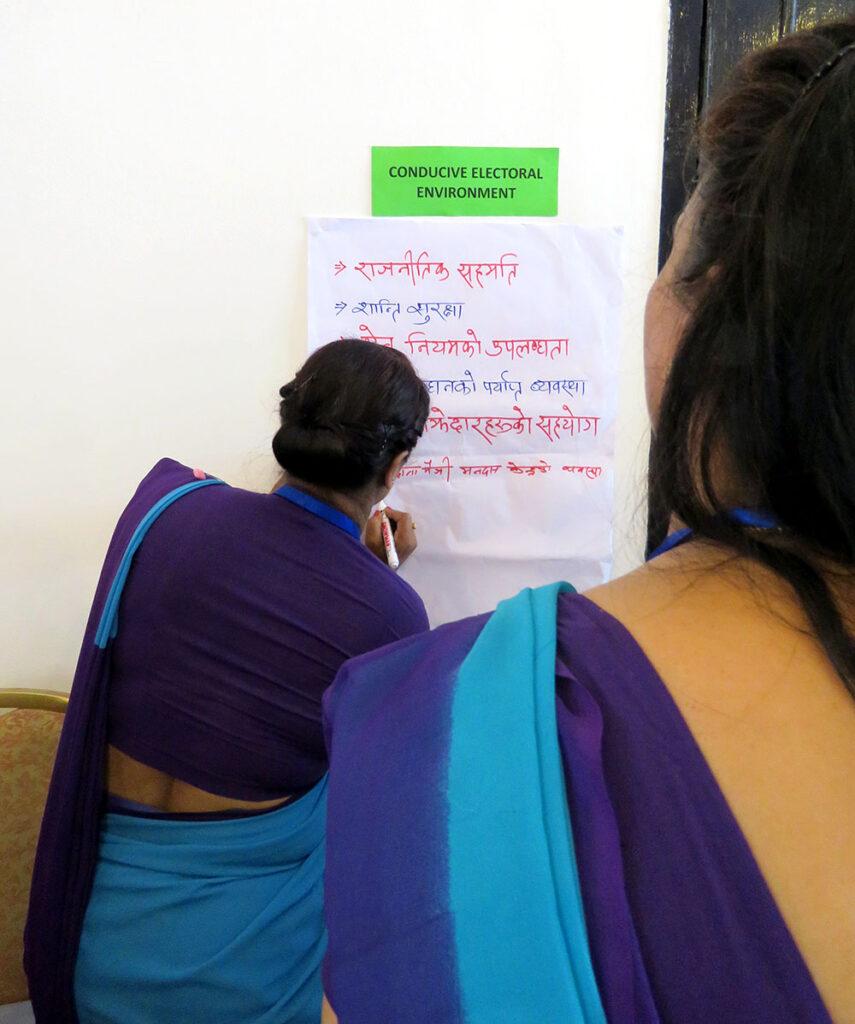Considering BRIDGE

Consideration of the use of BRIDGE may be prompted in a number of ways.
A general request, not making specific mention of BRIDGE, may be received seeking assistance with electoral training or staff capacity development. In some cases a donor or BRIDGE Partner may conduct a broad country-based assessment on electoral assistance and may consider the option of using BRIDGE as part of an assistance package.
Over a series of exploratory discussions, a consensus may develop between several bodies that the use of BRIDGE would be worth exploring, without there necessarily being a formal request. Another scenario is a specific request received directly from an organisation such as an electoral management body (EMB) or from the government of a country that would like to use BRIDGE as a short-term project.
Needs assessment considerations
A needs assessment process should involve at least one accredited, experienced BRIDGE facilitator. This will help to anticipate any problems (logistical, technical or financial) that might be encountered during implementation, as well as build a relationship with the main stakeholders.
A needs assessment will consider:
- Appropriateness of BRIDGE
BRIDGE may not be the most appropriate tool to be used in a particular context. There are instances where institutional, operational or human resource issues may result in other solutions being more appropriate. The context may require more direct electoral assistance rather than the use of BRIDGE or even individualised processes such as coaching, which may make BRIDGE inappropriate as the required tool.
- Capacity development vs. operational training
It is likely that many clients will consider that, rather than a BRIDGE-style workshop, what they need is operational training directly related to their work.
- Target groups
Ideally, participants should represent a cross-section of the organisation’s personnel, for example, senior managers, middle managers field staff only. Increasingly, BRIDGE workshops have been used effectively to sensitise, inform and engage other stakeholders in the electoral process such as political party members, community leaders and journalists.
- Centralised vs. decentralised training
The client may have preferences concerning the number and location of workshops. This will determine the type, composition and length of the BRIDGE program, as well as the funding required.
- Timeframe for training
The timeframe for training will often be most significantly affected by the stage in the electoral cycle in the client country, or region, if there is more than one client. The subsequent choices of BRIDGE modules, customisation and delivery will also be carefully considered against the selected timeframe. Multi- year programs with clear long term goals are preferable.
- Compatibility with other capacity development initiatives
It is important for BRIDGE planning to be aware of other capacity development initiatives that are happening that at the time/place and ensure appropriate coordination and compatibility between programs.
- Risk assessment
Planning for any project requires undertaking an assessment of the risks involved. Such an assessment should be outlined in a risk assessment plan that would cover the following aspects:
- risks, in other words, possible events which could compromise the success of the project
- likelihood of occurrence
- likely impact
- measures considered to minimise and manage identified risks
Informing BRIDGE Partners
When an assessment is undertaken, one of the first steps should involve communication with the BRIDGE Partners working in the country or region to seek advice and support in conducting the assessment. Initial contact with the BRIDGE Partners can be made through the online contact form.
If the needs assessment recommends that BRIDGE program is appropriate and the decision has been made to proceed, contact the relevant BRIDGE Partner for information, support, and details in designing and delivering a BRIDGE program.
